
Irrelephant: The Misleading Connections Between Terrorism and Ivory Poaching
The world is experiencing an ‘environmental crime crisis’. Dwarfed only by the trafficking of drugs, humans and counterfeit goods, the illegal wildlife trade is estimated to be the fourth largest type of transnational organised crime. But compared to the smuggling of bullets and bodies, wildlife crime is vastly under-researched. Most people have not even heard of the world’s most trafficked mammal, the humble and far from headline-grabbing pangolin. Yet one area of this booming illicit trade receives more attention than most: poaching for ivory and rhino horn. Driven by growing Asian prosperity, particularly in Vietnam and China, a revived market for ivory and horn has expanded to unprecedented heights for modern times. Accompanying this growth is a narrative which connects …
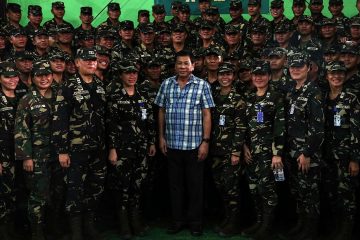
Southeast Asia in Dark Times: Philippines’ Martial Law and Indonesia’s Mob Rule
The future of democracy and the rule of law in Southeast Asia is in peril. While fundamentally different in many ways, current political developments in the Philippines and Indonesia showcase an erosion of fundamental rights, respect of differences and due process. Confronted by terrorism, drugs and illiberal groups, how willing and able are the governments of the Philippines and Indonesia to balance national security prerogatives and popular demands with respect for civil liberties? A Spiral of Murder in the Philippines Under the leadership of President Rodrigo Duterte, the Filipino government embraced “martial law” to wage war on drugs, and now against militants aligned with the Islamic State. The government’s actions have reportedly led to widespread human rights violations and extra-judicial …
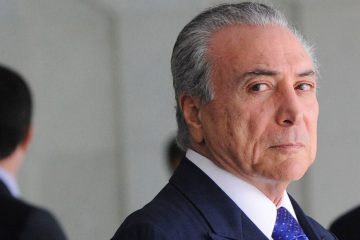
Will a different Brazil emerge from its political crisis?
It is tempting to speculate about what will happen next in Brazil after the abrupt and tantalizing unfolding of a new chapter in the country’s ongoing political crisis. Yet, it is important to first pause to note what is at stake: the country has just entered one of the most uncertain moments of its modern history. The foundations of the republic are crumbling before our eyes and the country’s long-term future is as unclear today as it has ever been. What the future of Brazil will be depends on the next few days and weeks. There is mounting pressure on President Michel Temer after the audio of a private conversation between him and Joesley Batista, co-owner of JBS (the world’s …

Even more unpredictable: Trump’s U-turn on Syria
“When you kill innocent children – innocent babies – babies – little babies with a chemical gas that is so lethal, people were shocked to hear what gas it was, that crosses many, many lines. Beyond a red line, many, many lines,” Trump said when asked about Tuesday’s chemical weapons attack in Syria that killed some 80 civilians and injured many more. Thursday night he swiftly followed through with his remarks, launching missile strikes on Shayrat airfield in Syria, where the attack is suspected to have originated. Commentators have been quick to point out Trump’s remarkable U-turn on Syria. From his ‘America First’ rhetoric, to his cosying up to Putin and repeated statements that he thinks ‘many very bad things …
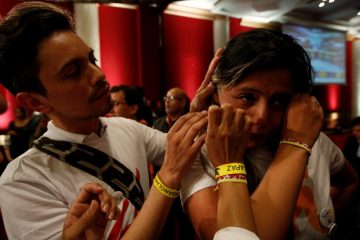
Colombia has voted no on its plebiscite for peace. Here’s why and what it means
On Sunday, the Colombian people rejected the recent peace deal that the Colombian government had reached with the Revolutionary Armed Forces of Colombia (FARC) after 52 years of civil war. The plebiscite narrowly failed: 50.2 percent rejected the peace accord, while 49.8 percent were in favour. What, exactly, were Colombians voting on? Colombians cast votes on whether they support the peace agreement, reached in August and formally signed on Sept. 26. The content of the 297-page peace accord had been made public before the vote. Who voted no? The “no” vote is not representative of all Colombians. Less than 40 percent of Colombians voted in the plebiscite, leaving many voices unheard. This was partly related to weather conditions; the Caribbean …
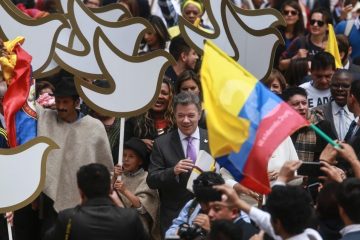
Why the real test for Colombia’s peace begins after the demobilization process
On Aug. 29, 2016, the Colombian government and the leftist insurgent group FARC initiated a cease-fire. The two parties had reached a remarkable peace accord a few days earlier, hoping to end 52 years of civil war. Colombian President Juan Manuel Santos announced that the peace deal will be formally signed Sept. 26, which would trigger the 180-day demobilization of the FARC. Colombia’s armed conflict, the longest-running in recent global history, left more than 220,000 people dead and about 6.7 million displaced within the region. The cease-fire formalizes the end of combat activities between state forces and the FARC, formally known as the Revolutionary Armed Forces of Colombia — and all hostilities against civilians. After decades of brutal violence and several failed peace processes, this …
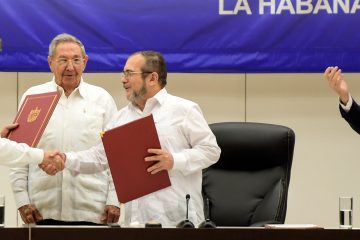
A momentous peace deal with the FARC – so what next for Colombia?
The groundbreaking news reached me when I was in Bogotá in a meeting with the head of the Colombian Army: after more than 50 years of armed conflict, and four years of negotiations, the Colombian government and the leftist guerrilla group, the FARC, have reached a final peace agreement. The historic deal looks set to bring to an end the longest running war of recent history. The agreement is cause for huge celebration, but an official end to war with the FARC is only the start of the road to peace. Securing sustainable peace needs a balance of addressing the immediate security risks during the period of transition, as well as anticipating the long-term challenges that may emerge. ‘Yes’ or …

The Schadenfreude Candidate
Donald Trump is probably not a Manchurian candidate planted by Vladimir Putin to disrupt the American political landscape. That is just the latest attempt to explain how, of all people, the crude thrice-married billionaire from the outer boroughs became the Republican nominee for President of the United States. While the “Trump as Russian sleeper agent” theory is far-fetched, several well thought-out explanations have caught on. Too often, though, these fail to explain why Trump specifically became the standard-bearer of the GOP and stands a shot at winning the election. The jump from “what is happening” to “why him,” is key to understanding the Trump phenomenon. Bearing this in mind, I argue that Donald Trump is the candidate of schadenfreude. Not …









